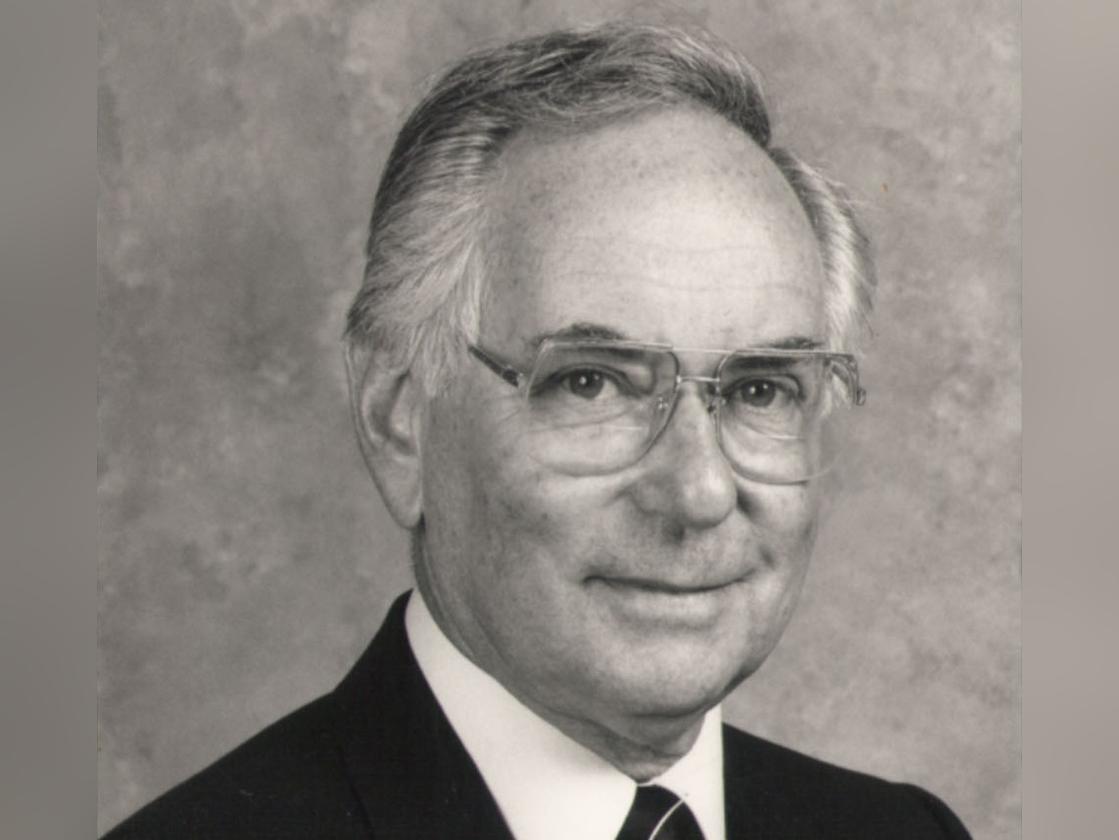
Former chair Larry Rappaport dies at 94
Post-harvest physiologist founded Plant Growth Laboratory
Lawrence "Larry" Rappaport passed away peacefully at home on Oct. 5, 2022, after an extended challenge with dementia. He was 94.
Rappaport was born on May 28, 1928. In 1956, Rappaport joined the Department of Vegetable Crops at UC Davis after completing his B.S. degree at the University of Idaho, serving in the United States Army in Korea and completing his Ph.D. at Michigan State University. He had previously visited Davis and had set his sights on a faculty position here, so he was thrilled when he received the offer to join the faculty. He and his wife, Norma, settled in Davis and raised three children here.

Rappaport's initial appointment was as a post-harvest physiologist, and he worked initially with Louis Mann (for whom the Mann Laboratory is named), Leonard Morris and Harlan Pratt. He was also a pioneer in studying gibberellin action in plant growth, particularly in dormancy, which he applied in studies of potato bud dormancy during storage. He spent time in the lab of Jake MacMillan in the United Kingdom and a sabbatical with Shinichiro Kawata in Japan, honing his skills in gibberellin chemistry and plant tissue culture. He noted in an emeritus video interview that, at that time, he was doing postharvest research during the day and hormone research at night.
In the 1970s, Rappaport conceived the notion that there would be value in having a small, interdisciplinary institute devoted to developing plant biotechnology. After considerable internal politicking on campus, he was able to create the Plant Growth Laboratory in Wickson Hall. Bill Breidenbach and Ray Valentine were among the members of this group, which was exploring plant cell culture and genetic modification techniques that laid the groundwork for genetic engineering. Valentine subsequently founded Calgene, which marketed the first transgenic product, the Flavr Savr tomato in 1994.
Rappaport became the chair of the Vegetable Crops Department in 1979, just as a large cohort of faculty hired after World War II was retiring. In the early 1980s, he hired 10 new faculty members within a few years, renewing the department and expanding both basic and applied research in genetics, breeding, physiology and crop management. All who were hired by him or who served under his leadership appreciated his strong support, mentorship and sage advice.
At the same time, he also was director of a large, international project in Egypt that ran for five years to increase the productivity of vegetables there, particularly tomatoes. Ron Voss and Bill Sims (CE specialists in the Vegetable Crops Department) led these programs in Egypt, which tripled tomato yields. In addition, Rappaport taught courses in plant growth and development, including during a period of increased student interest in agriculture, when enrollments in such courses went from 20 to 30 students to more than 150.
In 2004, the Vegetable Crops Department joined with the departments of Agronomy, Pomology and Environmental Horticulture to form the current Department of Plant Sciences.
Even among all his research, teaching and administrative responsibilities, Rappaport found time to be a key leader of the Jewish community in Davis. He and Norma essentially created the Davis Jewish Fellowship (Congregation Bet Haverim) in their living room and led the establishment of Hillel of Davis and Sacramento, a home away from home for Jewish students. He also was one of the founders of the Davis Human Relations Council, working to support tolerance and diversity locally.
Rappaport retired in 1991 during a time when the university offered a “golden handshake” for faculty to retire earlier than they might have planned. He did not want to retire at that time, but the offer was too good to turn down. However, for an additional six years, he continued to get grants and conduct research with his colleague, Bruce Bonner, on hormonal regulation of plant growth and development.
He also became interested in writing his memoirs as part of the OLLI Writers Group, which he eventually published. These delightful stories and memories, including descriptions of his sabbaticals with his family and adventures at scientific conferences, were ultimately a gift to himself and his family as his memory faded.
A graveside service was conducted at the Davis Cemetery on Oct. 10, 2022, where it was evident that all who had the pleasure of knowing or working with Rappaport respected and loved him. His sweet, warm and spontaneous nature brought smiles to those around him to the very end. He lived his values of family and community, and his example and presence will continue to be felt in all he helped build. Rappaport truly followed the advice he gave to his grandchildren in his memoirs: “Openness to others is a key to a loving and happy life.”
Media Resources
- Trina Kleist, tkleist@ucdavis.edu, (530) 601-6846
